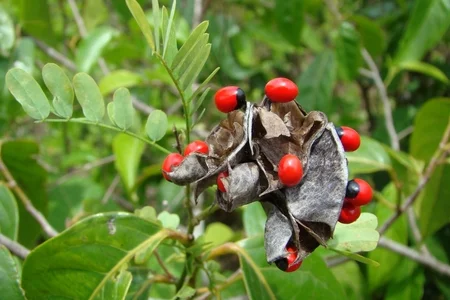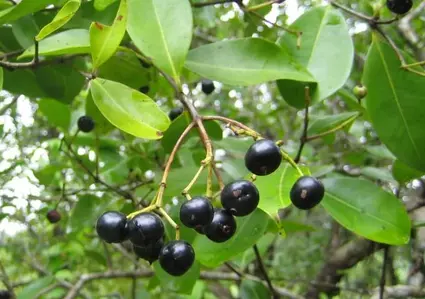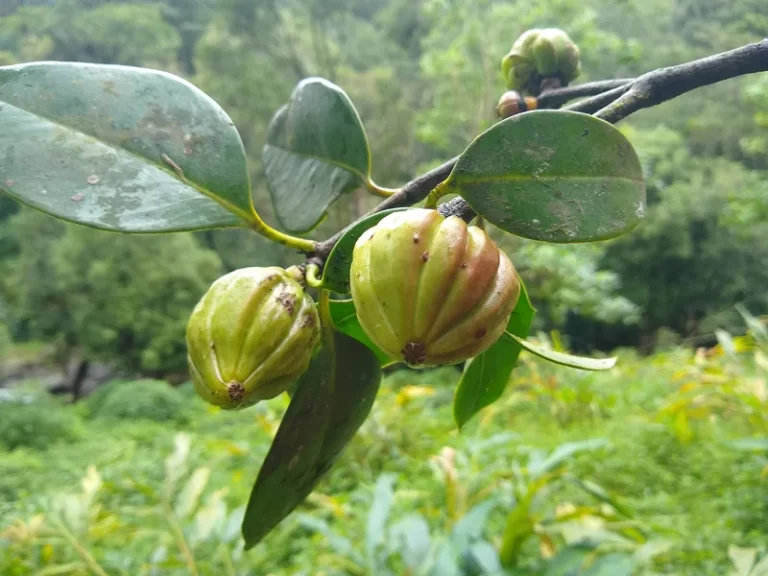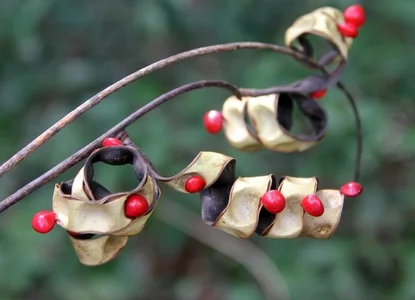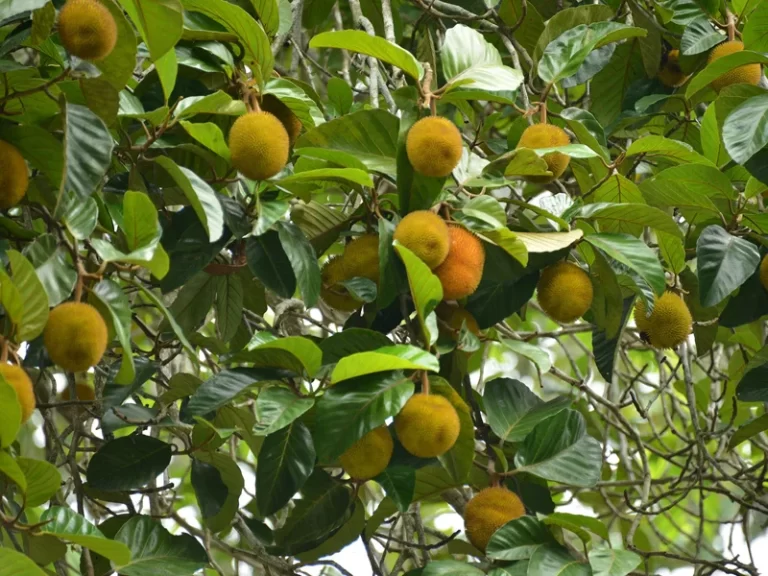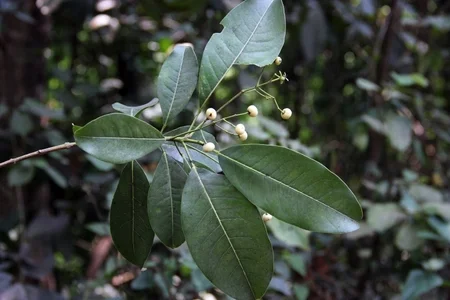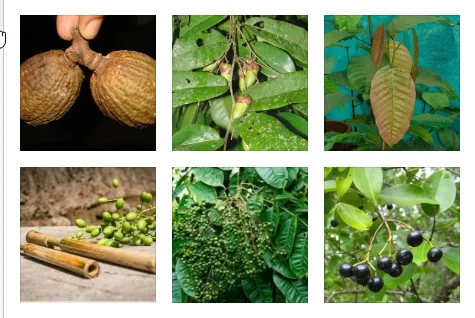Gulagunji – Jequirity Bean
Botanical name of Jequirity Bean or Rosary Pea or Gulagunji : Abrus Precatorius
Common Names of Abrus Precatorius
Hindi:
Kannada: Gulagungi.
Tulu: Manjatti
Malayalam: Kunni.
Tamil: Kuntumani.
Telugu: Guriginga.
Description of Gulagunji
The Gulagunji plant is best known for its seeds, which are used as beads and in percussion instruments, and which are toxic because of the presence of abrin. Ingestion of a single seed, well chewed, can be fatal to both adults and children. The plant is native to Asia< India and Australia. It has a tendency to become weedy and invasive where it has been introduced. Rosary pea is highly toxic and can be fatal if ingested. In its native range, the roots are used to induce abortion and relieve abdominal discomfort. One of the most deadly plant toxins, abrin, is produced by rosary pea. Studies have shown that as little as 0.00015% of toxin per body weight will cause fatality in humans (a single seed). Birds appear to be unaffected by the deadly toxin as they readily disperse rosary pea seed. The seeds of this plant are so uniform in size and weight that they are used as standards in weight measurement as well as to make jewelry, including rosaries.
Flowering & Fruiting: July – March.
Distribution of Gulagunji
India: Almost throughout. Common in deciduous forests. Sri Lanka.
Uses
The Gulagunji seeds have been used as weights by jewelers and as beads for making necklaces and other ornaments. Both the roots and leaves are used against cough and cold. The roots have been used as a substitute for liquorice. Root diuretic, tonic and emetic; root and leaf anticholagogue; seeds used in affections of nervous system, analgesic, anthelmintic, antimuscarinic, antispasmodic, uterine stimulant, used in leukoderma; seed paste used as an anti-inflammatory agent and applied locally in sciatica, stiffness of shoulder joints and paralysis. The seeds also posses antifertility properties. Seed paste combined with Plumbago zeylanica L. (Bilichitra moola) root is used for dressing leprosy wounds. The roots of Abrus Precatorius, black sulfide of mercury, fruits of Azadirachta Indica A. Juss. (Bevina Mara), Cannabis sativa L. (Ganja Gida) and seeds of Croton tiglium L. are ground together in lime juice to form a paste and taken internally against paralysis. In the Unani system, the seeds are considered an abortifacient.
In Ayurveda root, leaf and seed of Gulagunji are used for eye diseases, diseases of pitta andkapha, jaundice, pain, poisoning, fainting, arthritis and leucoderma.
The common Ayurvedic preparations are “Gunja Bhadra Ras”, Gunja Taila” and “Gunajdilepa”
Go to Tulu News Page to read more about Tulu Nadu News, Events etc.
Go to Our Partner Website to book Self Drive Cars to drive in Mangalore, Udupi and Kasargod

